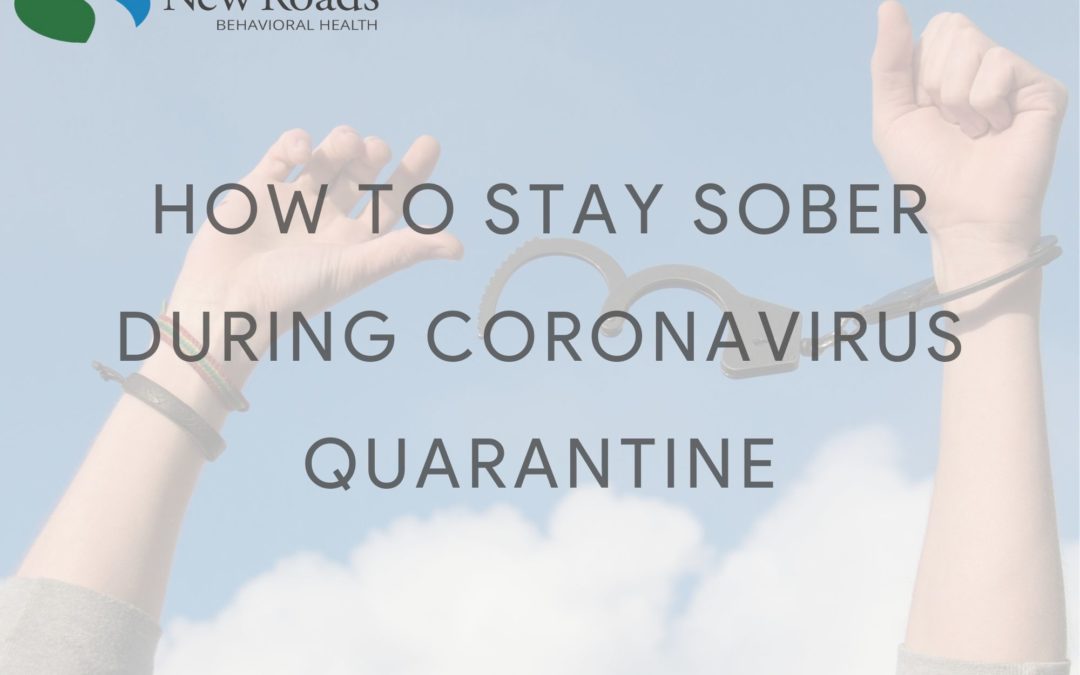The Coronavirus Pandemic has shaken up our lives as we knew them, sending many into panic and stress.
It is not surprising that drinking has gone up 45% since the start of the Coronavirus quarantine.
New Roads Behavioral Health is an Essential business, we are open and taking patients.
Stay Sober by Knowing the Stages of Relapse
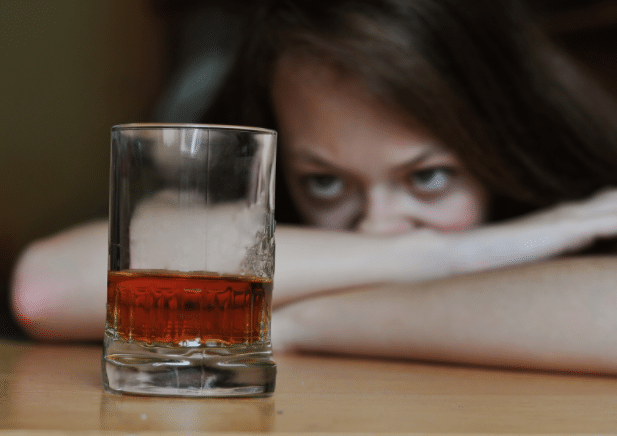
Relapse is very common with addiction. According to the National Institute on Drug Abuse, about 40 to 60 percent of people who receive treatment for addiction relapse within the first year of recovery. That relapse rate might appear intimidating but keep in mind it also means that 40 to 60 percent of people don’t relapse during the first year. And once you make it through the first year, the second is a bit easier.
Just as addiction is different for everyone, relapse is different for everyone. There is research suggesting that it might be different for men and women. For example, one study of people recovering from cocaine addiction found that men were more likely to relapse following positive experiences while women were more likely to relapse following negative experiences, especially interpersonal conflict. That study also found that men were more likely to plan a relapse then rationalize it after the fact and women were more likely to relapse impulsively. This complicates the stereotypical picture of someone in recovery giving in to temptation following a traumatic experience, or just a really bad day.
While there’s no one way relapse happens, there are often common features. What’s more, relapse is often a process that often takes weeks or months. It may follow several months—or even years—of an apparently strong recovery. It typically starts with emotional relapse,
proceeds to mental relapse, then finally to physical relapse. Here are what each of those stages looks like.
Emotional Relapse
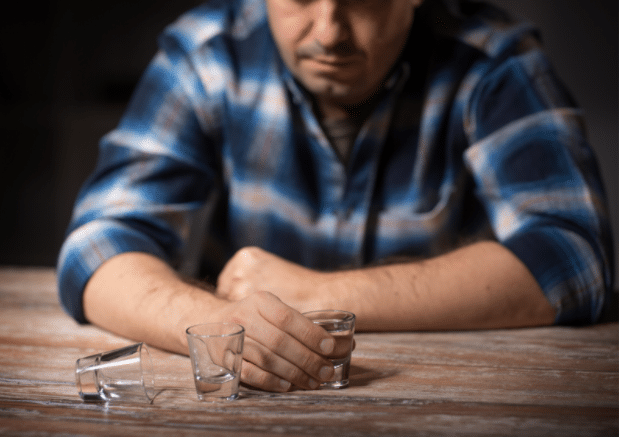
During an emotional relapse, you probably have no intention of drinking or using drugs again. You remember how bad life was before you went into treatment and you have no desire to go back there. However, you’re not feeling great either. Perhaps your recovery has stalled a bit and your motivation is waning. Perhaps you have gotten a bit complacent and begun to let some important aspects of your recovery plan slide.
Typical signs of emotional relapse include bottling up emotions, isolating yourself, not going to 12-Step meetings or going but not sharing, being preoccupied with other people’s business, and poor eating and sleeping habits. Poor self-care, in general, is a major warning sign of emotional relapse. It suggests you’re not following your recovery plan and it can quickly lead to deteriorating mental health. Good sleep habits are particularly important for mental health. Without adequate sleep, you quickly suffer cognitive impairment, including poor attention, memory, and self-control. Over time, poor sleep increases your risk of anxiety and depression. Studies also suggest that diet plays an important role in mental health too. A diet high in sugar
and processed foods is especially bad for mood and focus. Letting bad habits creep in is likely to adversely affect your mental health and make recovery harder.
If you notice the symptoms of emotional relapse, the best thing to do is go back to basics and pay attention to self-care. Go to outpatient meetings, get plenty of sleep, exercise, and talk to your sponsor or therapist. At this point, you probably still have a genuine desire to stay sober, so do everything you can to get back on track.
Mental Relapse
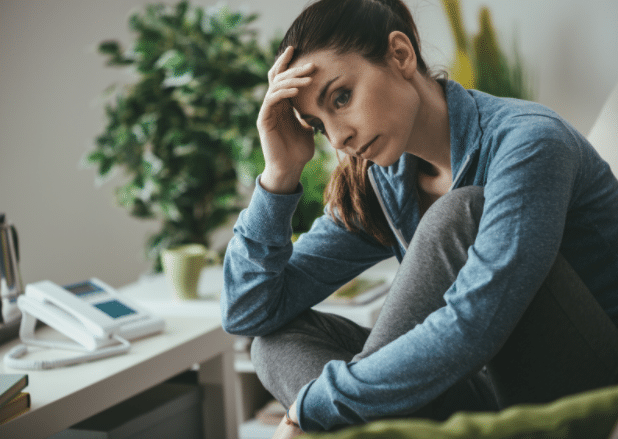
At the stage of mental relapse, your position is more precarious. In the beginning, you still want to stay sober but you also feel conflicted. You may not feel like recovery is everything you hoped it would be. Perhaps you’ve gotten pretty negative or cynical. Perhaps your mental health has deteriorated to the point where you wonder whether it’s worth the effort to stay sober.
Typical symptoms of mental relapse include having drug and alcohol cravings, thinking about people, places and things associated with drugs and alcohol, minimizing the consequences of past use or glorifying past use, bargaining, lying, thinking of schemes to use drugs or alcohol in moderation, looking for excuses to relapse, and finally, planning to relapse. At this point, you’ve basically decided to give up on recovery and you will probably relapse at the next opportunity.
At the beginning of the mental relapse stage, it’s still possible to correct course but the farther you go, the harder it is. When you get to the point where you’re planning a relapse, someone might have to intervene if you are going to stay sober.
If you start to notice that you’re glorifying past drug or alcohol use, it might help to “play the tape.” This is when you think beyond the immediate gratification of using again to all the consequences that will follow. Imagine as vividly as possible how disappointed you would feel after relapsing. Think of the people who will feel let down. Remember the feelings you had just prior to getting help when you felt like you were at your lowest point. Vividly imagining the consequences of a relapse can motivate you to ask for help when you’re struggling with sobriety.
Physical Relapse
Physical relapse is when you actually start drinking or using again. This may be more of a slip or a full relapse. Both are serious but a slip is much easier to come back from and exposes you to less danger. Often, people fall into the trap of thinking, “Well, I’ve ruined my recovery, so I might as well go all out.” That’s an example of black-or-white thinking. If you have a slip, the best thing you can possibly do is get sober again as soon as possible.
Have a Plan
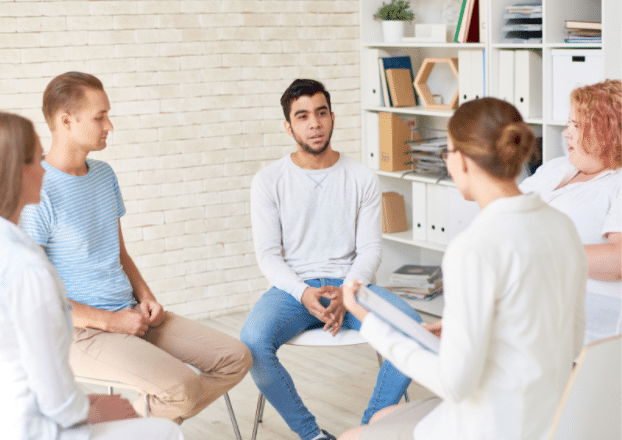
Being in self isolation, or quarantined at home may become a huge obstacle for past substance abusers to overcome and avoid relapse. The best way for you to aid yourself in the prevention of a relapse, is a situational variant of events that depend on each person’s situation. Have your own personalized plan set in place. With your own needs and triggers in mind, you can try to avoid the things that would lead you to relapse.
If you’re a recovering addict, make sure you aren’t quarantined alone. Having a support system with you is the number one way to stop yourself from going back on your sobriety. Being alone can create mental health issues, such as depression, that lead to substance abuse and relapse. Having at least one family member or friend who knows you’re fighting addiction and recovery creates a strong person on your side. They can support you and monitor your activities to help make sure you stay sober.
Another idea for a plan to have in motion, is to not keep any substances in your home that would tempt you during quarantine. Keep your quarantined space free of physical triggers that may be hard for you to temp in a time of emotional struggle.
Participate in an Outpatient Program

While our outpatient program is set up to handle both substance abuse and mental health issues individually, as well as dual diagnosis clients (co-occurring disorders). Since over half of those with substance abuse disorders have also been diagnosed with a mental health or personality disorder, we take this into account during all levels of care.
- Cognitive and Dialectical Behavioral Therapy (CBT/DBT)
- Motivational Interviewing
- Regular Drug Testing
- Regular Therapy Sessions (individual and/or group)
Addiction Treatment In Salt Lake City
New Roads specializes in many different areas of addiction treatment. From alcohol and substance abuse to gambling addiction, New Roads Addiction Treatment Salt Lake City can provide individualized treatment for any situation.
Thousands of patients have successfully been restored at New Roads and if you want, you’re the next to recover!
We have psychiatrists, doctors, psychologists, therapists, monitors and more at your disposal, to aid you in your recovery journey.
Our patients recover quickly without facing extreme withdrawal symptoms, to continue on a happy, healthy pathway.
We immediately identify the particularities of consumption and profile features of the addicted person. We act therapeutically in a non-forceful and personalized way to achieve fast and lasting results over time.
In Conclusion
Staying sober during your quarantine for stopping the spread of coronavirus doesn’t have to be something you battle alone. There are people to reach out to and resources to help you manage your sobriety.
Times are difficult now, not just for previous addicts. They’re hard on everyone and having any sort of relapse is foreseeable, but also preventable with the right support. Have a plan in place to support yourself and others in fighting to keep your sobriety.
Having a plan releases tension on others so they know how to best support you. It also creates a smaller window for a relapse incident if you plan all avoidance in a physical, mental, or emotional relapse. There are also outside resources to help you stay sober. New Roads Behavioral Health is here to support those who need it in this hard time.
Mental health is so important and with this COVID crisis, depression/anxiety/addiction is at an all-time high. We can help you! One of our therapists will help each individual assess their situation, identify their particular challenges, and build a customized treatment plan. Message us if you or your loved one needs assistance by calling 888-358-8998.
We have the perfect resources to offer the most complete and personalized therapeutic solutions in the treatment of all types of addictions. We overtake other centers and obtain the highest recovery rates.
If you or a loved one are in need of help, learn more about our New Roads Addiction Treatment in Salt Lake City, Utah as well as our residential treatment options by calling 888-358-8998.
New Roads Behavioral Health
2450 E Fort Union Blvd.
Cottonwood Heights, UT 84121
info@newroadstreatment.com

